WATCH: Eli Cohen Comes Home: Mossad Recovers Legendary Spy’s Lost Archive
Israel’s Mossad retrieves 2,500 documents, photos, and relics of legendary spy Eli Cohen from Syria, honoring a hero and reigniting a decades-old legacy.
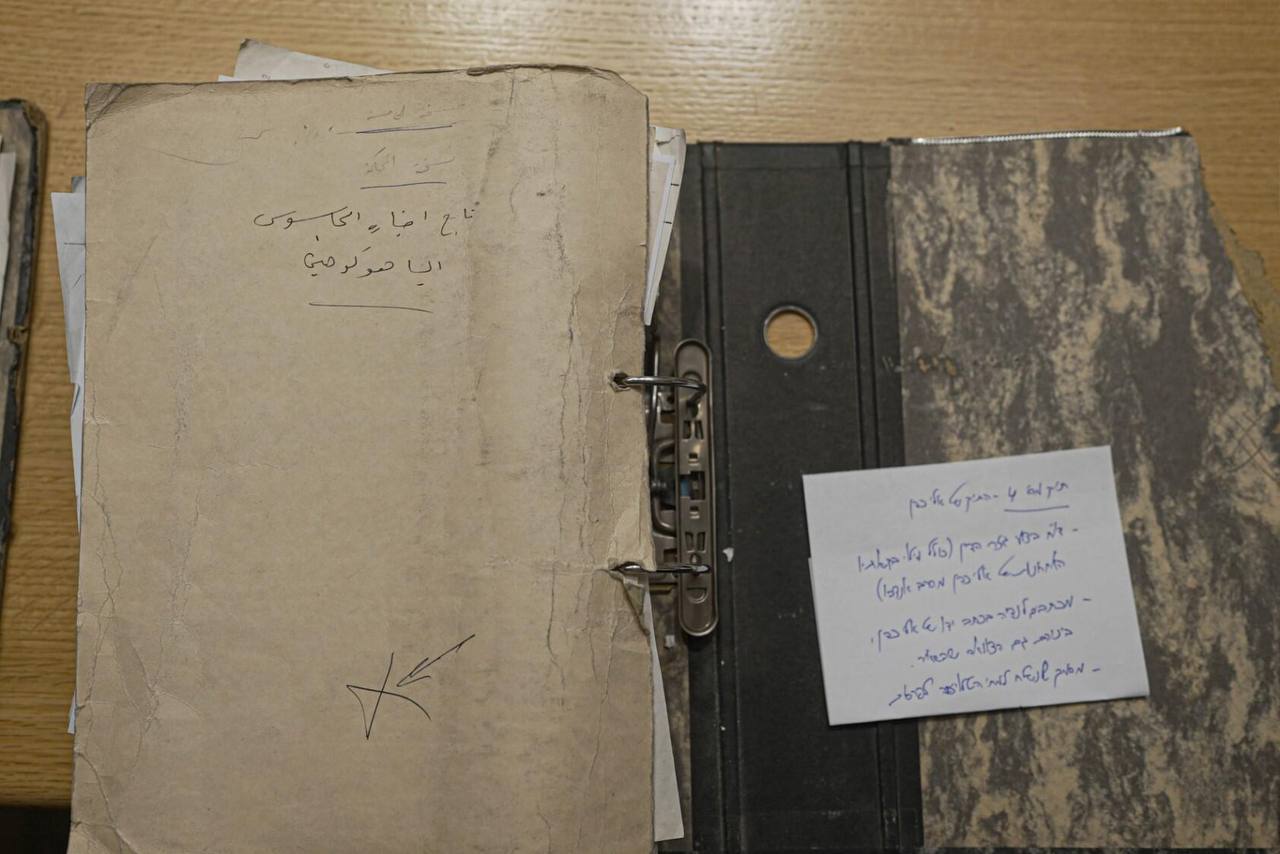
Sixty years after his execution in a Damascus square, Eli Cohen, Israel’s most storied spy, has returned home, not in body, but in spirit. In a clandestine operation unveiled today, the Mossad, Israel’s intelligence agency, retrieved a trove of 2,500 documents, photographs, and personal items from Syria’s tightly guarded archives.A Spy’s Life, Rediscovered
Eli Cohen, posing as a wealthy Syrian businessman named Kamel Amin Thaabet, infiltrated Damascus’s elite in the early 1960s. His intelligenc, gleaned from friendships with military and political leaders, proved pivotal to Israel’s 1967 Six-Day War victory, particularly in capturing the Golan Heights. But in 1965, Syrian counterintelligence unmasked him. At 40, Cohen was tortured, tried, and hanged, his body never returned. For decades, his fate and burial site remained a mystery, haunting Israel’s collective memory.
The archive, secured through a “complex and covert” Mossad operation with an unnamed allied intelligence service, offers an unprecedented window into Cohen’s double life. Among the 2,500 items are investigation files detailing his Syrian contacts, forged passports, and keys to his Damascus apartment. Photographs capture him alongside Syrian generals and ministers, a testament to his audacious charm.
Diaries reveal Mossad-assigned missions, like surveilling military bases in the Golan, while letters to his family in Israel brim with longing and coded resilience.
Most poignant is Cohen’s original will, penned hours before his execution, a document known until now only through a copy.
Another standout: his death sentence, which permitted Rabbi Nissim Andabo, head of Damascus’s Jewish community, to accompany him in his final moments per Jewish tradition.
The archive also exposes Syrian intelligence’s obsession with Cohen’s widow, Nadia, whose global pleas for his release were meticulously tracked in a file bearing her name.
A Widow’s Vigil, a Nation’s Resolve
At a Jerusalem meeting today, attended by Prime Minister Benjamin Netanyahu and Mossad Director David Barnea, Nadia Cohen, now in her late 80s, held her husband’s will for the first time. The moment capped her decades-long campaign to uncover his fate. Syrian records even document her letters to world leaders and Syria’s president, a testament to her unyielding fight.
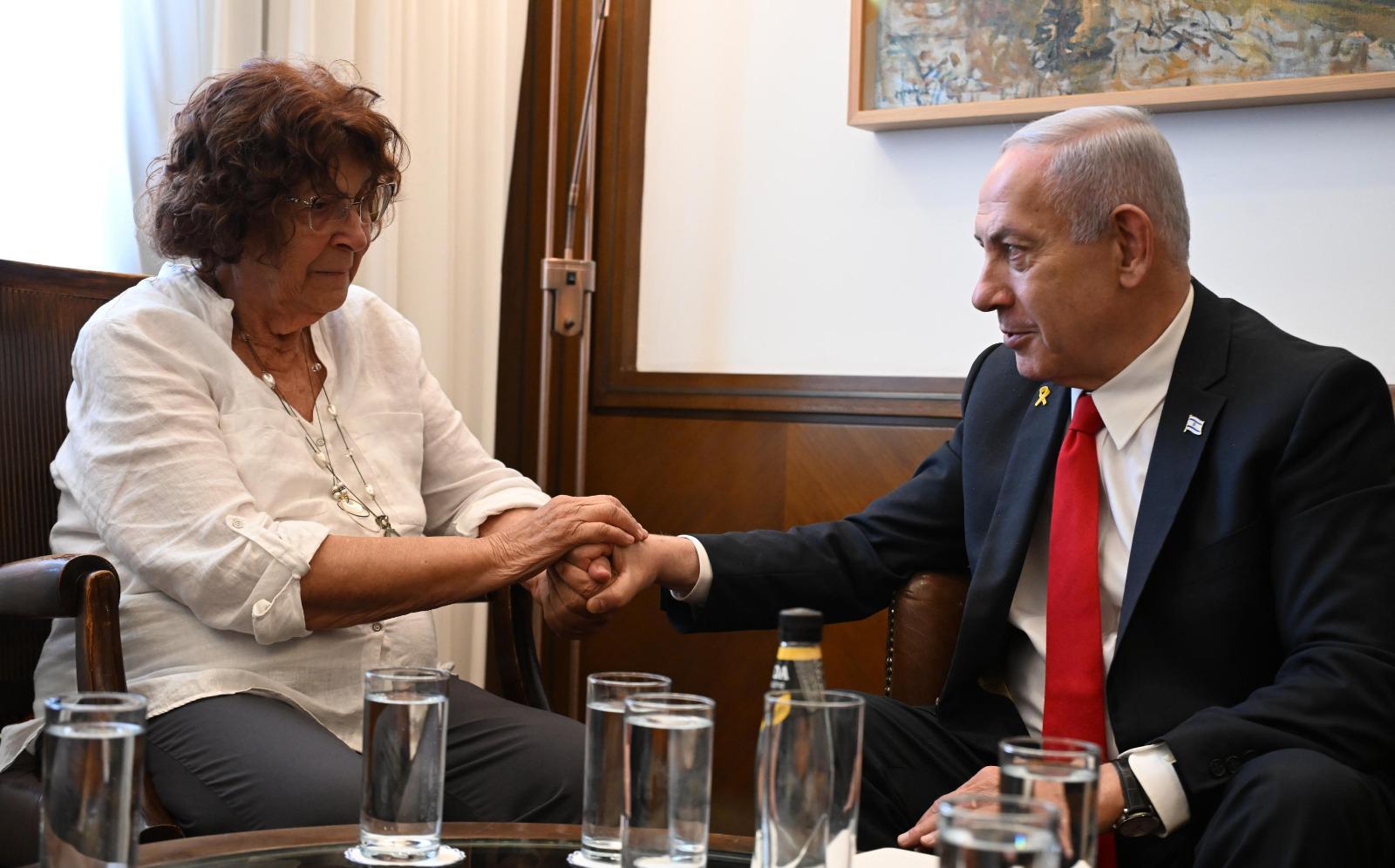
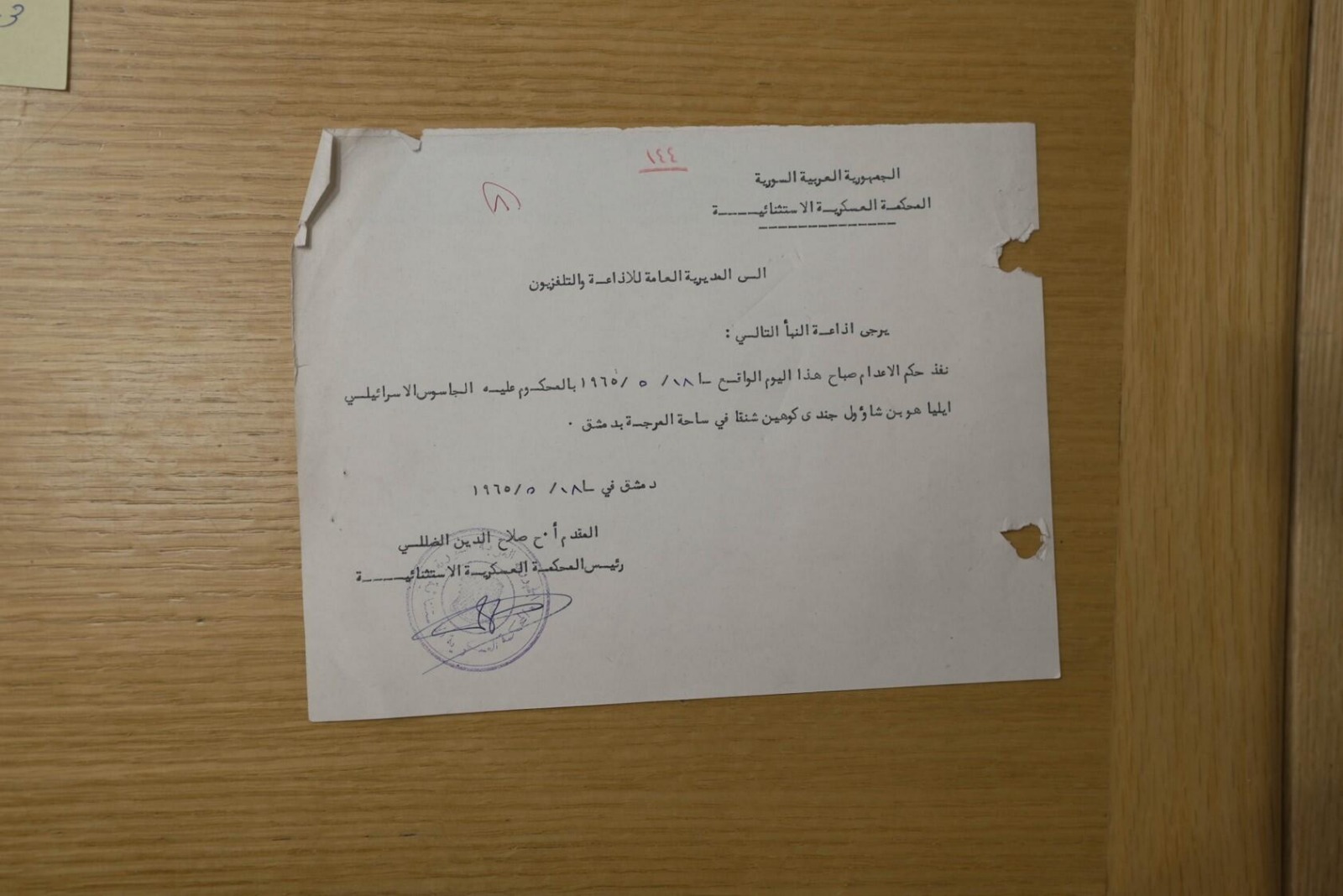
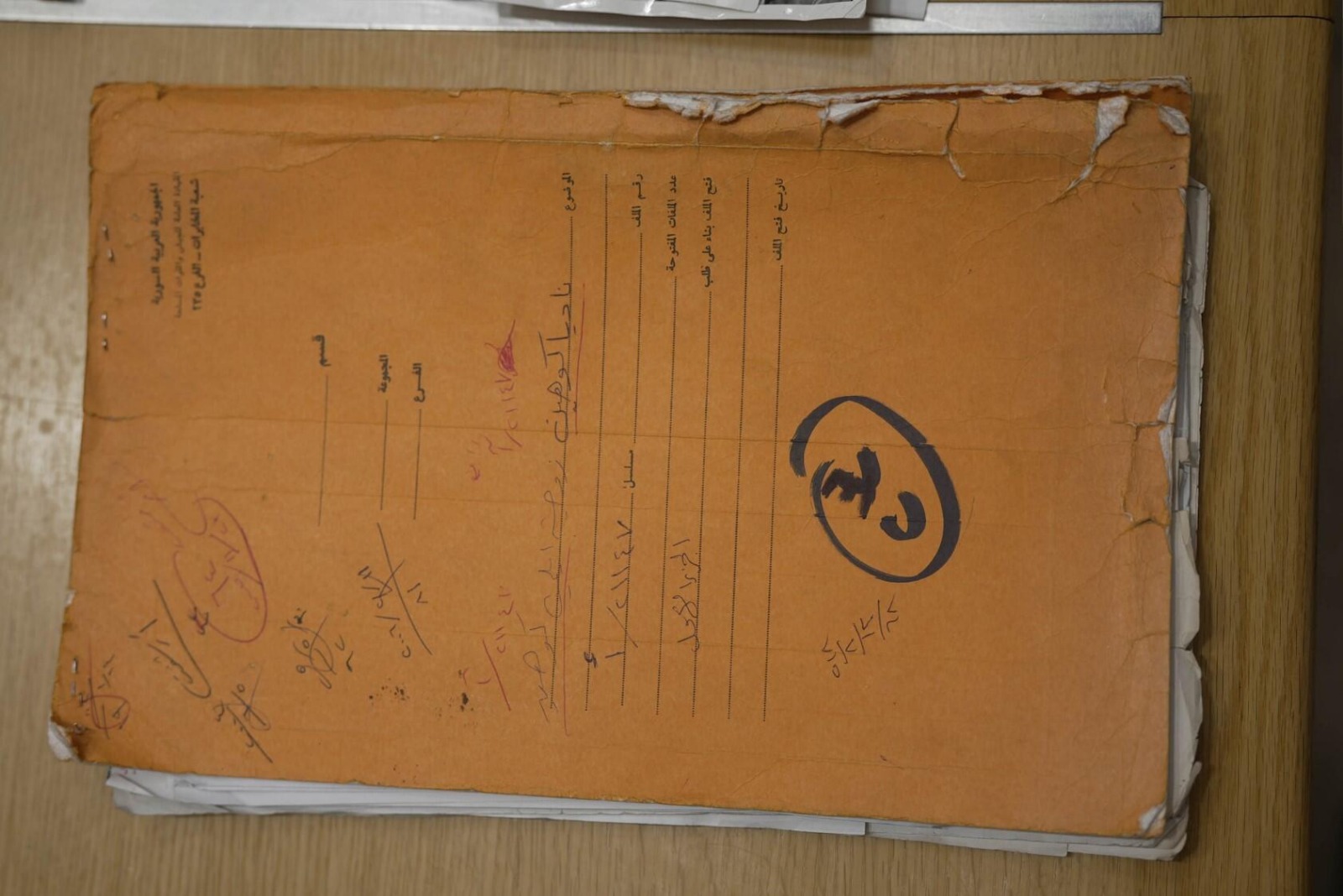
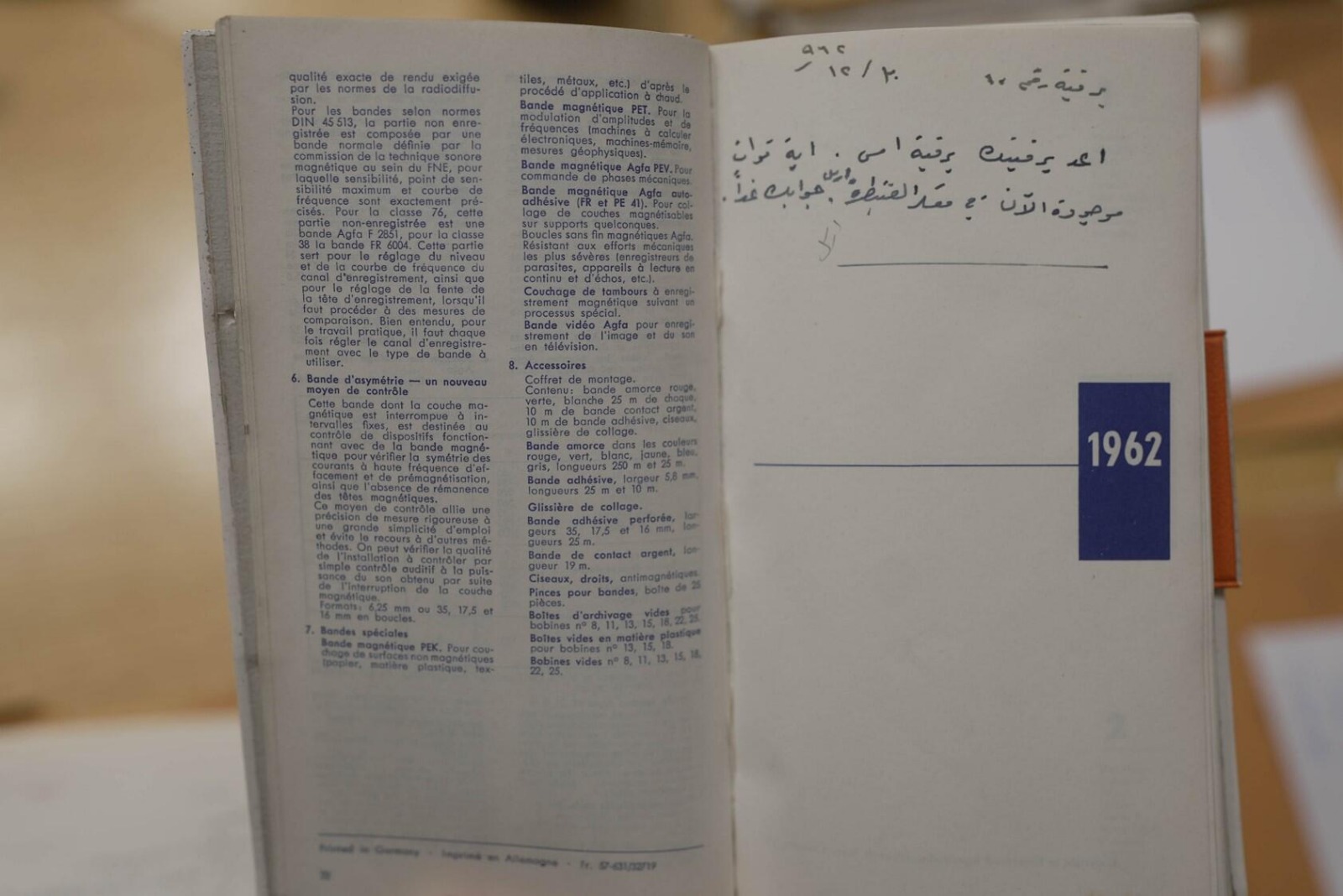
Netanyahu, addressing the gathering, called Cohen “the greatest intelligence operative in the history of the state.” His espionage, Netanyahu said, “contributed to the historic victory in the Six-Day War.” The archive, he added, “will educate generations” and reflects Israel’s “unwavering commitment to bringing home all our missing, captives, and hostages.” Barnea, more measured, framed the operation as a “moral achievement” and a step toward locating Cohen’s burial site, a mission the Mossad has pursued for decades, often in enemy territory.
The operation’s timing resonates deeply. Israel, still reeling from the October 7, 2023, Hamas attack and the ongoing Gaza war, faces a hostage crisis and surging global antisemitism. Cohen’s story, heroism against impossible odds, mirrors the nation’s current resolve.
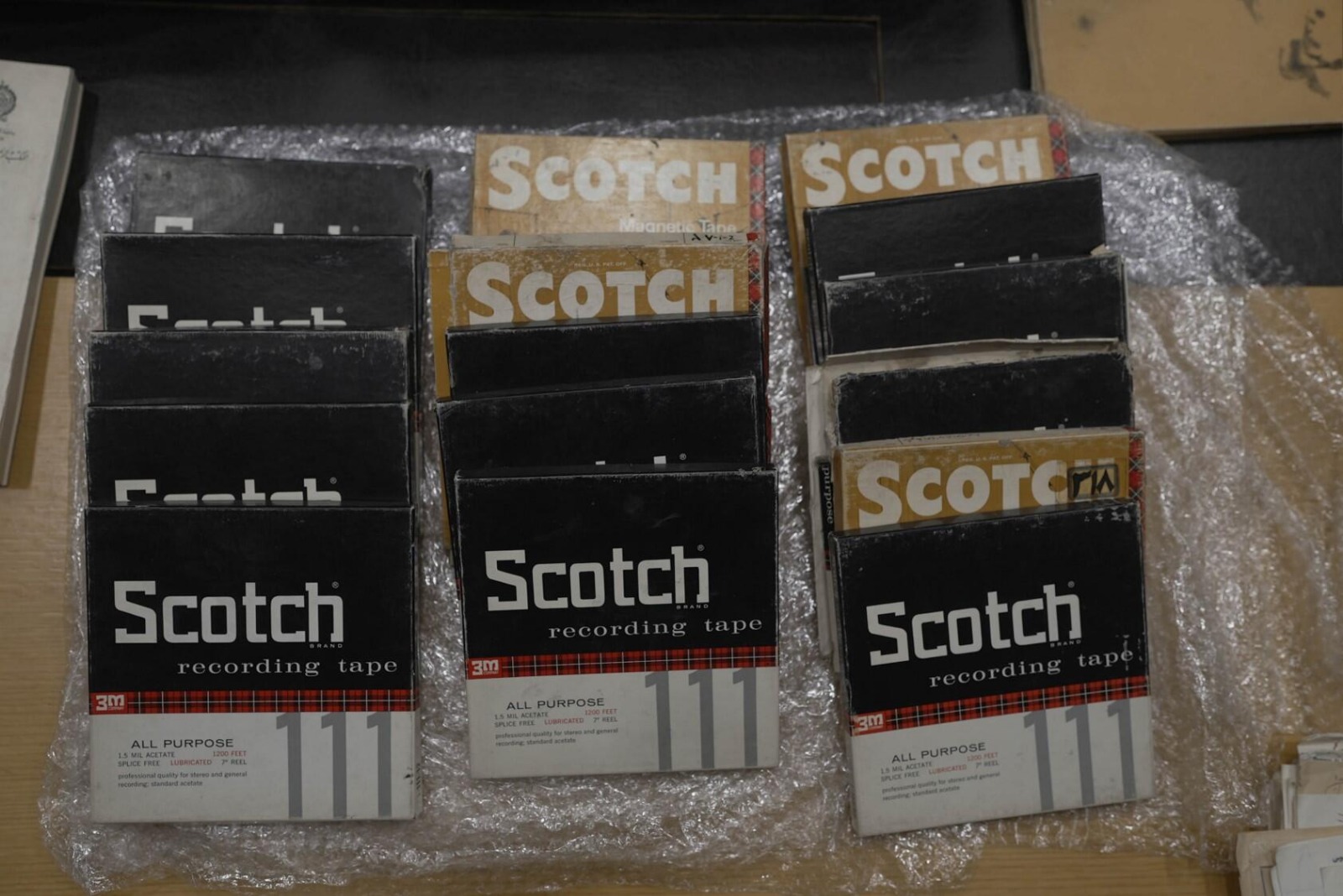
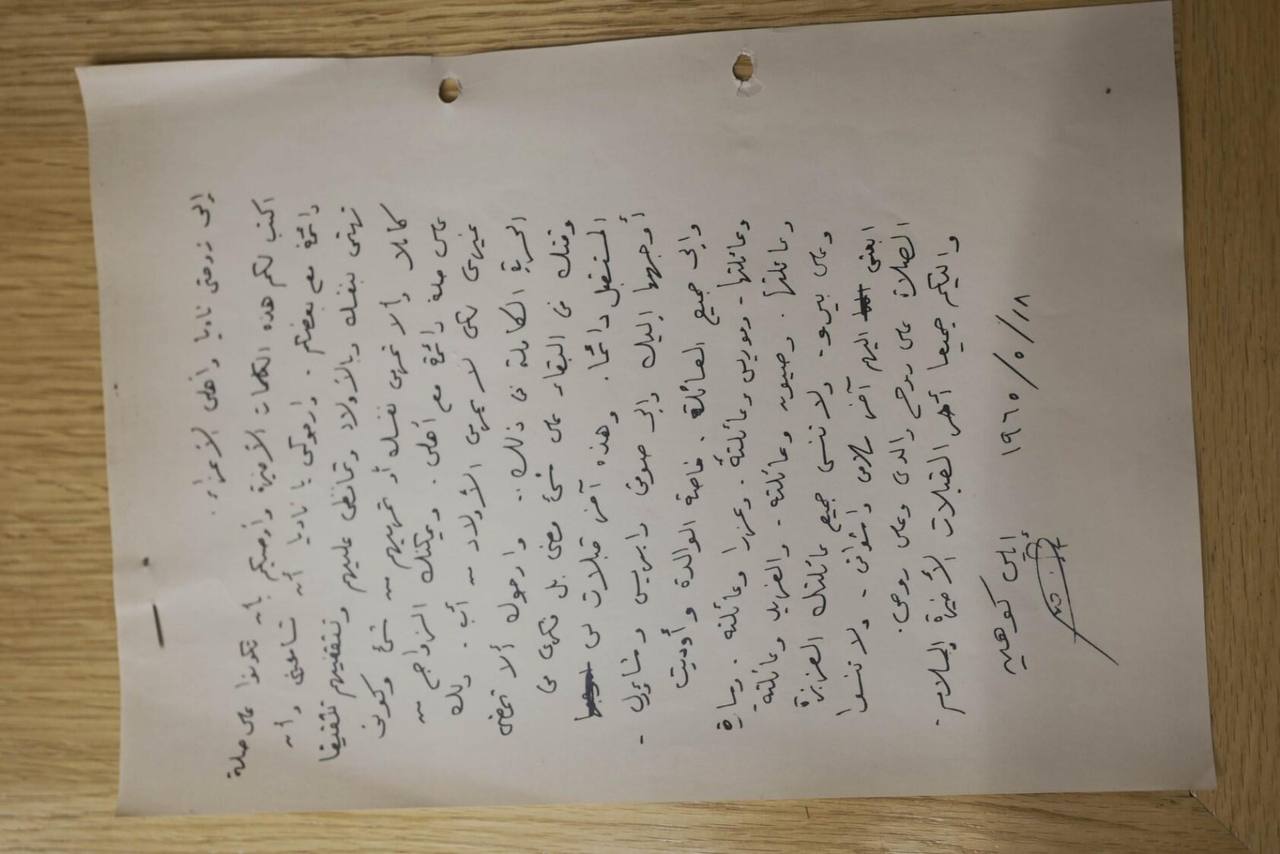
This is the letter Eli wrote to his wife Nadia after he was captured and brought to trial in Syria (courtesy of Omer Shahar).
"To my dear wife Nadia and my beloved family,
I am writing you my final words, asking you to always maintain close ties with one another.
And I ask you, Nadia, to forgive me, to take care of yourself and the children, and to ensure they receive a complete education. Do not deny yourself or them anything, and always stay in touch with my family. You may marry another so that the children do not grow up without a father. You have full freedom to do so, and please, do not waste your time weeping over what was, but always think of the future.
These are the final kisses I send to you, to Sophie, to Iris, to Shaul, and to all the family members, especially to my mother, to Odette and her family, to Maurice and his family, to Ezra and his family, and to Albert and his family.
And do not forget all your dear family members: send them my final blessings of peace and my longing. And do not forget to pray for the elevation of my father’s soul and my own.
To all of you, my final kisses and peace.
Decades in the Making
The Mossad’s retrieval was no spur-of-the-moment feat. For years, agents scoured Syria and beyond, chasing leads on Cohen’s fate. The archive, held by Syrian security forces in classified vaults, was a guarded relic of their counterintelligence triumph. How the Mossad extracted it remains undisclosed, but Barnea credited “strategic allies” and “a series of covert activities.” The operation aligns with Israel’s broader intelligence efforts to recover missing soldiers, hostages, and artifacts, even from hostile states.
The archive’s contents are staggering in scope. Beyond Cohen’s operational records, it includes Syrian surveillance logs, audio recordings, and personal items like his apartment keys, seized after his 1965 arrest. A particularly chilling find: a thick dossier on Nadia Cohen, detailing her advocacy as if she, too, were a target.
A Legacy for the Future
The archive will soon be accessible to researchers and, in part, the public, ensuring Cohen’s story endures. For Nadia and her children, it’s a bittersweet homecoming. As Barnea put it: “We will continue to work to bring back all the missing, the fallen, and the hostages, the living for rehabilitation, the fallen for eternal rest.”
Cohen’s legend, already immortalized in books, films, and a Netflix series, gains new depth with this archive. His ability to charm Syria’s elite while funneling secrets to Israel remains a masterclass in espionage. Yet it’s the personal relics, his letters, his will, that humanize him: a husband and father who knew the risks but chose duty above everything.
As Israel navigates a turbulent present, Cohen’s archive is a reminder of what one person can achieve and what a nation will do to remember. “He was our man in Damascus,” Netanyahu said. “And we’ve brought him home.”